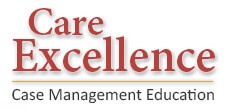Care Managers Play an Important Role in Helping Patients, Families Tackle Addiction
 Substance use disorders affect people from all lifestyles. Some people become addicts after they begin using drugs recreationally; others begin misusing prescription medication and develop a dependence on it that can consume their lives.
Substance use disorders affect people from all lifestyles. Some people become addicts after they begin using drugs recreationally; others begin misusing prescription medication and develop a dependence on it that can consume their lives.
Hospital case managers are in a unique position to evaluate patients and families when they are at their most vulnerable. If a patient is experiencing full-blown addiction, it can be extremely difficult to stop without effective professional treatment.
In mid-2017, drug overdoses became the leading cause of death in Americans under the age of 50. In 2016, over 4,000 people died from unintentional drug overdoses in Ohio, a 36% increase from the year before when the state had led the nation in overdose deaths.
Heroin or prescription painkillers, sometimes laced with a synthetic opioid, Fentanyl, are commonly abused drugs, as is alcohol. Case managers may also encounter patients who abuse steroids, stimulants, ecstasy, crystal meth, bath salts or cocaine.
Importance of Identifying Substance Abuse
It is important for case managers to identify patients with substance use disorders in order to improve the success of healthcare treatment programs aimed at medical issues. Unfortunately, many addicts forgo treatment, leading them and their families into dangerous territory. Care managers can help identify those suffering and support their decision to address their addiction.
Recovery from addiction is more than just abstinence. The addict will first go through a physical detoxification followed by therapy to help them identify the urges and triggers that kept them using in the first place. Community and hospital-based case managers can support addicts as they go through the process of addiction recovery and take control of their disease.
Symptoms of Addiction
Substance use disorders typically produce physical and behavioral symptoms that case managers can spot in patients or family members. In some instances, the patient or family member will self-report a substance use disorder or acknowledge an overdose in the past.

Behavioral symptoms of substance abuse typically reflect an impaired ability to focus and think clearly. You might notice physical changes in a person as well. Symptoms of substance use disorders include but are not limited to:
- Irritability, lethargy, depression
- Mood swings
- Dramatic changes in habits or priorities
- Neglecting responsibilities
- Bloodshot eyes, or dilated or constricted pupils
- Unusual body odors
- Sudden weight loss or weight gain
- Problems sleeping, or sleeping too much
In families with school age children, family members may report students who are having difficulty at school or are now disinterested in school-related activities, which is a change in behavior. Adults may have poor work performance or be chronically late.
Case managers may interact with people who are “functional alcoholics,” or those who can hide or minimize their signs of alcoholism. However, as the disease progresses, these signs become more difficult to conceal. Alcohol abuse can trigger blackouts and memory loss. Eventually, an individual’s hands may tremble and/or their voice become husky after damage from alcohol.
Individuals suffering from alcoholism will have a lack of control over how much they drink and may prefer to drink alone and in secret. The addiction is so powerful the addict will continue to drink despite problems related to their interpersonal, physical and psychological life triggered by alcohol. Some may claim to drink in order to cope with their problems, to relax, to sleep or believe that it improves their mood.
Financial and Emotional Burden of Substance Abuse
Case managers must recognize that addiction is not a one-way street. The addicts’ behaviors do not exist in a vacuum; they damage family relationships and cause significant pain to their loved ones.
The addict often puts a family member or close friend in a position where they feel they must be a caretaker. This can place a great financial and emotional burden on family members, even taking a toll on the caretaker’s physical health. Addiction is also expensive; as a person’s substance abuse becomes more compulsive, they may run out of financial resources.
Case managers have the challenge of connecting the dots for individuals and families struggling with substance use disorders. Through integrating community resources, advocating with insurance companies and health plans, and educating and supporting the patient, the care manager can play an important role in recovery.
SOURCE
Alexander, S. (January 31, 2019) Superior Court Case Number 1884-cv-01808 (BLS2). Commonwealth of Massachusetts
Reynolds, D., (June 6, 2017) Overdoses now leading cause of death of Americans under 50. CBS Evening News
Cidambi, I. (July 6, 2016) Identifying Alcohol or Drug Abuse in the Work Place. Psychology Today
Hill Country Detox (July 31, 2017) Identifying and Managing Common Substance Abuse Triggers. Hill Country Detox, Drug and Alcohol Medical Detox
(July 24, 2017) Why Substance Abuse Treatment is Important. Recovery Care Partner
Frieden, T., Houry, D. (2016) Reducing the Risks of Relief — The CDC Opioid-Prescribing Guideline. New England Journal of Medicine 374:1501-1504
